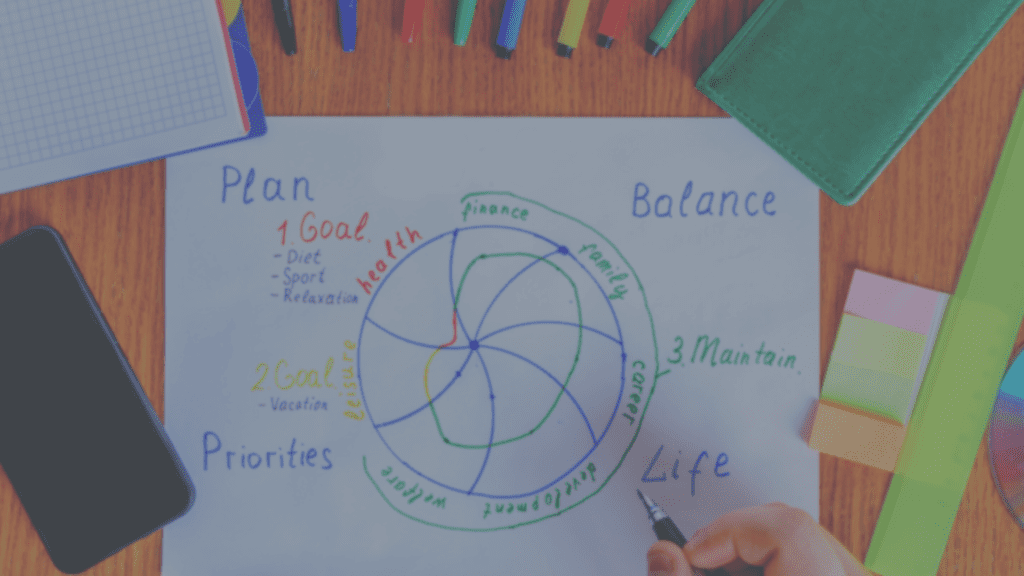Mapping the Path to Success
Planning


What is Planning?
Planning is the cognitive process of determining what needs to be done, when to do it, and how to execute it efficiently. It involves setting clear objectives, outlining steps, and organizing tasks in a logical sequence.
Effective planning ensures that time and resources are used wisely, allowing individuals to stay focused, manage priorities, and work toward long-term goals with confidence.
Creating a Clear Roadmap
Understanding Planning
Successful planning involves more than just writing a to-do list—it’s about structuring tasks and managing time effectively. These elements work together to provide direction and reduce stress when juggling multiple responsibilities. The key components include:
Setting Objectives
Defining clear, achievable goals.
Outlining Steps
Breaking down large goals & responsibilities into actionable steps.
Organizing Tasks
Arranging tasks in a logical sequence for smooth execution.
Time Management
Allocating time appropriately and considering deadlines.
Identifying Struggles
Recognizing Planning Challenges
Planning difficulties can cause disorganization, missed deadlines, and a lack of progress toward goals. Common challenges include:
Forgetting Important Tasks
Struggling to keep track of assignments, appointments, or responsibilities.
Not Knowing Where to Start
Feeling overwhelmed by large projects or long-term goals.
Things Slipping Through the Cracks
Losing track of key details or struggling to follow through.
Feeling Out of Control
Days feel chaotic without a structured plan to guide actions.
Building a Structured Approach
Strategies to Strengthen Planning Skills
Here are some strategies to improve your ability to plan and follow through effectively:
Maintain a Master List
Keep a running list of all tasks and responsibilities.
Use a Calendar
Track deadlines and key dates to stay organized.
Prioritize Tasks
Identify high-priority items and tackle them first.
Utilize Visual Cues
Use color coding, sticky notes, or digital reminders for important tasks.
Schedule Downtime
Plan intentional breaks to maintain balance and avoid burnout.
Unlocking Your Potential Through Coaching
How Coaching Supports Planning
Coaching supports individuals in developing practical and sustainable planning strategies that fit their unique needs. Through coaching, you can:
Increased Self-Awareness
Gain insight into how planning challenges impact your productivity.
Strategy Development
Learn techniques and strategies tailored to your strengths and goals.
Receive Feedback & Reflection
Work with a coach to refine planning habits over time.
Accountability & Follow-Through
Maintain consistency and follow through on planned actions and the strategies that are working.
Set Your Path
Take Your First Step Towards the Best Plan You'll Ever Make
If planning difficulties are affecting your ability to manage responsibilities, coaching can provide the structure and support needed to develop effective, long-term strategies. Contact us today to explore how personalized coaching can help you stay organized, focused, and in control of your time.
Discover Essential Cognitive Skills
Learn More About Other Executive Functions
Working Memory
Holding and Using Information Effectively Working Memory What is Working Memory? Working memory is a fundamental cognitive skill that allows...
Goal Setting
Elevate Your Performance Goal Setting What is Goal Setting? Goal setting is a crucial cognitive process that allows individuals to...
Inhibitory Controls
Filtering Focus for Success Inhibitory Controls What are Inhibitory Controls? Inhibitory controls are the brain’s ability to regulate attention and...
Goal-Directed Persistence
Staying the Course, Pushing Through Challenges Goal-Directed Persistence What is Goal-Directed Persistence? Goal-directed persistence is the ability to consistently work...



